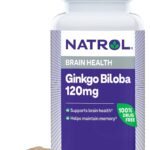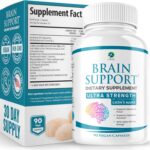Fitness and Exercise: Unlocking a Healthier You
The Importance of Fitness
In today’s fast-paced world, it’s easy to get caught up in the hustle and bustle of daily life and forget to prioritize our physical and mental well-being. Unfortunately, this can lead to a range of negative effects on our health, from increased stress and anxiety to decreased energy levels and poor overall health. That’s why it’s essential to make fitness and exercise a priority in our lives. Regular physical activity can have a profound impact on both our physical and mental health, improving our mood, reducing our risk of chronic diseases, and even extending our lifespan. Whether you’re looking to improve your overall health, increase your energy levels, or simply feel more confident in your own skin, incorporating regular exercise into your routine is a great place to start.
Types of Fitness and Exercise
There are countless ways to incorporate exercise into your daily routine, and the best type of fitness for you will depend on your individual goals and preferences. Some people enjoy high-intensity workouts like running or weightlifting, while others prefer low-impact activities like yoga or swimming. There are even options for those who may be new to exercise, such as group fitness classes or online workout programs that cater to beginners. If you’re looking to add some variety to your fitness routine, consider trying something new like kickboxing, Pilates, or kick-scootering. With so many options to choose from, there’s no excuse not to get moving and start experiencing the many benefits of exercise for yourself.
The Science Behind Exercise
But how exactly does exercise benefit our bodies and minds? One of the primary ways that exercise improves our health is by increasing our levels of endorphins, often referred to as "natural painkillers" or "feel-good" hormones. These chemicals are released in response to physical activity, and they help to reduce stress and anxiety while improving our mood and overall sense of well-being. Exercise also has a range of physical benefits, from strengthening our muscles and improving our cardiovascular health to reducing our risk of chronic diseases like heart disease, diabetes, and certain types of cancer. Additionally, exercise has been shown to have a positive impact on our brain health, improving cognitive function and even reducing the risk of age-related decline.
Setting Fitness Goals
So, you’re ready to start incorporating more exercise into your routine. But where do you start? The first step is to set some realistic and achievable fitness goals for yourself. This could be anything from committing to a daily 30-minute walk, to completing a certain number of workouts per week, or even training for a specific event like a 5K or marathon. Having clear goals in mind will help you stay motivated and focused, and can even help you to measure your progress and track your success. Remember to set goals that are specific, measurable, achievable, relevant, and time-bound, or SMART, to get the most out of your fitness routine.
Fitness and Exercise for Different Stages of Life
Another important consideration when it comes to fitness and exercise is the stage of life you’re in. For example, if you’re an older adult, you may need to modify your workouts to accommodate any physical limitations or health concerns you may have. On the other hand, if you’re a new parent, you may need to find creative ways to fit exercise into your busy schedule. By understanding the unique challenges and opportunities that come with each stage of life, you can tailor your fitness routine to meet your individual needs and goals. Whether you’re a busy professional, a stay-at-home parent, or simply looking to prioritize your health and well-being, there’s a place for fitness and exercise in your life.
Safety and Injury Prevention
When it comes to exercise, safety and injury prevention should always be top of mind. This means taking the time to properly warm up and cool down, stretching before and after your workouts, and listening to your body and taking rest days as needed. It also means being mindful of any physical limitations or health concerns you may have, and modifying your workouts accordingly. By prioritizing safety and injury prevention, you can minimize your risk of getting hurt and ensure that your fitness routine is both effective and enjoyable.
Tips for Staying Motivated
One of the biggest challenges many of us face when it comes to fitness and exercise is staying motivated. This can be especially true if you’re just starting out, or if you’re dealing with plateaus or setbacks. However, there are a range of strategies you can use to stay motivated and keep your fitness routine on track. These might include setting small rewards for yourself when you reach certain milestones, finding a workout buddy to hold you accountable, or simply focusing on how you feel rather than the numbers on the scale. By staying positive and focused, you can overcome any challenges that come your way and achieve your fitness goals.
The Benefits of Team Sports
If you’re looking for a fun and social way to get more exercise, consider joining a team sport or club. This could be anything from a recreational soccer league, to a local running club, or even a CrossFit gym. Not only can team sports provide a sense of camaraderie and community, but they can also help you to stay motivated and accountable, as well as provide opportunities for socializing and meeting new people. By getting involved in a team sport, you can take your fitness routine to the next level and experience the many benefits that come with it.
Fitness and Exercise for Mental Health
While exercise is often associated with physical health, it’s also an important tool for maintaining good mental health. Regular physical activity has been shown to reduce symptoms of anxiety and depression, improve mood, and even help to alleviate symptoms of ADHD. By incorporating exercise into your routine, you can take a proactive approach to managing your mental health and improving your overall well-being. Whether you’re struggling with mental health issues, or simply looking to stay mentally sharp and focused, exercise can be a valuable addition to your self-care routine.
The Importance of Consistency
One of the most important factors in achieving success with your fitness routine is consistency. This means committing to a regular schedule, and showing up to your workouts consistently, even when you may not feel like it. By prioritizing consistency, you can build momentum and make progress towards your fitness goals, even when you’re not seeing immediate results. Remember, consistency is key when it comes to exercise, and with dedication and perseverance, you can achieve anything you set your mind to.
The Future of Fitness
Finally, as we look to the future of fitness and exercise, it’s exciting to think about the new and innovative ways that we’ll be able to get moving and stay healthy. From virtual fitness classes to wearable technology, and even AI-powered workout routines, the possibilities are endless. By embracing these new advancements and staying committed to our fitness goals, we can continue to prioritize our physical and mental well-being, and live our best lives. Whether you’re just starting out, or are a seasoned fitness enthusiast, there’s never been a better time to prioritize exercise and take control of your health.



















